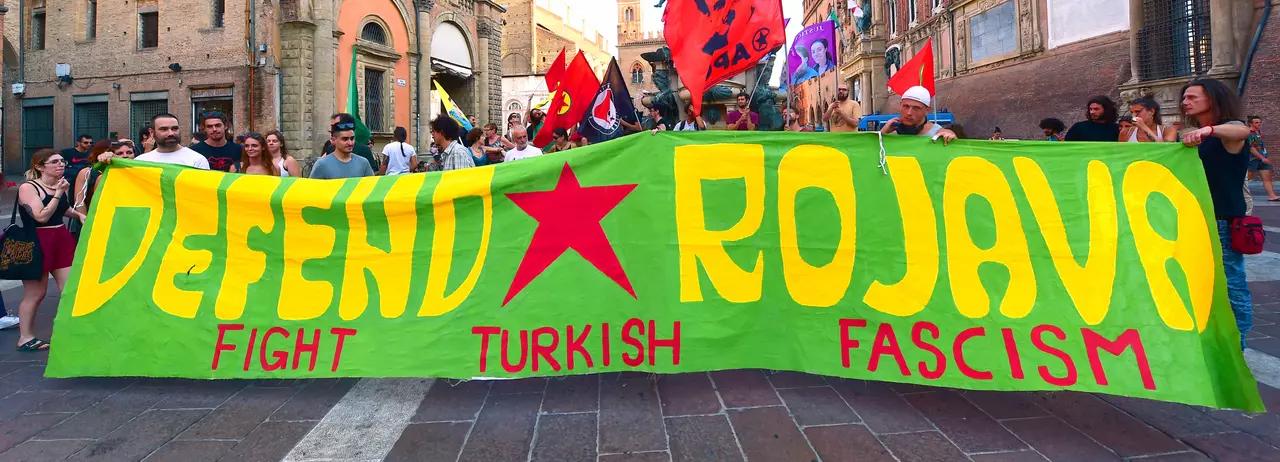The people of Rojava pose a core threat to any existing government—especially those with imperialist ambitions—by showing the world a viable model of peaceful multi-ethnic coexistence, grounded in lived political, cultural, and ecological autonomy.
Common Dreams | July 21, 2022
Ten years ago, an auspicious experiment started alongside one of the most atrocious bloodsheds of this century. In July 2012, as Assad’s troops faced an armed insurrection in southern and central Syria, a popular Kurdish-led uprising in northeast Syria quickly filled the power vacuum. By 2017, the Rojava revolution encompassed 5 million people—Kurds, Arabs, Assyrians, Turkmen, Armenians, Yazidis, and others. Guided by one of the most democratic constitutions in the world, the people of Rojava have established a system of decentralised self governance based on popular assemblies, gender equity, and radical inclusion of minorities. Striving towards a post-domination, post-extractive, post-state society, the Rojava revolution rests on a deep recognition of the necessity of women’s leadership at every level of social and political life, a community-based system of restorative justice, respect for all living beings and regenerative agriculture.
Its 10th anniversary may have seemed unlikely when the community first formed and their continued existence is testimony to the outstanding resilience and commitment of the people of Rojava, who willingly accept the consequences of their actions. From their inception, they needed to defend the revolution against significant hostility: Turkey to the north, Daesh (Arabic acronym for the Islamic State of Iraq and the Levant) and the Assad regime to the south and Iraqi Kurdish neighbors to the east.
In 2018 and 2019, just briefly after Rojava’s military, the Syrian Democratic Forces (SDF), had defeated Daesh, Erdogan and his Jihadist allies invaded and occupied the Rojavan canton of Afrin and launched an armed assault on larger territories, carrying out war crimes and forcing half a million people to flee their homes. In the occupied areas, the majority Kurdish population continues to suffer from what the United Nations calls a “grim” human rights situation, rife with ethnic cleansing, forced displacements and seizures of land and properties. Despite a ceasefire agreement, Turkey has led a perpetual war with consistent drone attacks, which has barely been reported in Western media.


